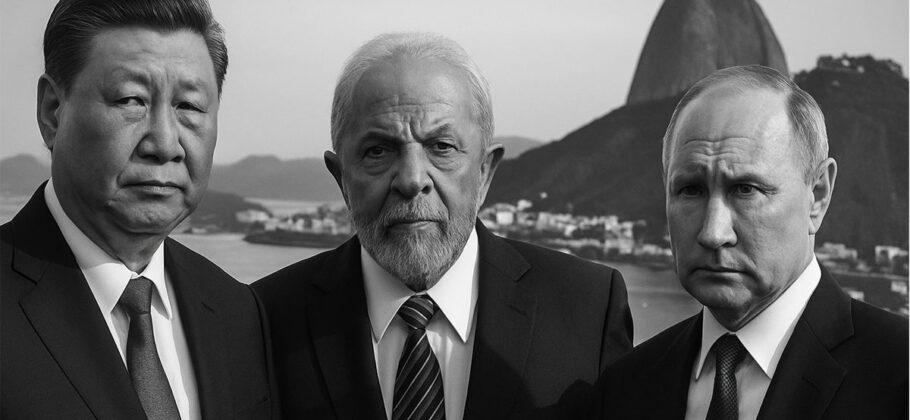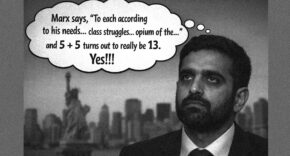Leaders from the BRICS bloc are gathering in Rio de Janeiro for a summit aimed squarely at confronting what they call President Donald Trump’s “illegal and arbitrary” tariff policies. The meeting is expected to produce a formal statement condemning U.S. economic pressure, signaling that the group is ready to push back against Washington’s aggressive trade agenda.
A Clear Message Targeting Washington
According to a draft declaration reviewed by journalists, BRICS members plan to issue what some diplomats have called “the strongest collective rebuke yet” of U.S. tariffs. The statement describes Trump’s trade measures as “indiscriminate” and warns they are already “threatening to further reduce global trade and investment.”
One negotiator involved in preparing the text said, “This is not just a complaint – it is a deliberate act of opposition to what the United States is doing to the world economy.” Another official explained that while the final document might avoid naming the United States outright, “everyone will know who we are talking about.”
Brazilian President Luiz Inacio Lula da Silva has personally backed the denunciation, declaring at the opening session, “If international governance does not reflect the new multipolar reality of the 21st century, it is up to the BRICS to contribute to its renovation.” He added that multilateral institutions “cannot remain hostage to the interests of a single country.”
Tensions have been building since Trump returned to office and revived his strategy of using tariffs as leverage. Earlier this year, he threatened sweeping new duties against both rivals and allies, only pulling back temporarily when markets began to panic. More recently, Trump announced that letters would be sent this week notifying trading partners of higher tariffs taking effect July 9.
The new measures have infuriated BRICS members, who see them as an attempt to bully developing economies. “These tariffs are not targeted—they are intended to intimidate every country that wants to chart its own economic course,” said Ana Garcia, a professor at the Federal Rural University in Rio. “The denunciation is about asserting that the U.S. cannot dictate the rules alone.”
Russian President Vladimir Putin, who will join the summit by video link, has repeatedly attacked what he calls Washington’s “weaponization” of the dollar. In a previous BRICS meeting, he said, “It’s not us who refuse to use the dollar. But if they don’t let us work, what can we do? We are forced to search for alternatives.”
The Draft Declaration’s Key Points
The proposed statement contains several parts designed to highlight the severity of Trump’s approach. Among its most forceful passages, it states that:
- The rise of unilateral tariff and non-tariff measures is “incompatible with the principles of international law.”
- These measures “threaten to further destabilize already fragile supply chains.”
- The global economy is being held hostage by “arbitrary decisions that disregard the interests of the majority of nations.”
Though the draft avoids direct personal attacks, it is clear that Trump himself is the focus. One negotiator said, “There is no confusion about who is causing this damage. We are describing actions that have one author.”
While most members agree on condemning the tariffs, some are pushing for even bolder language. A source close to the Iranian delegation said their negotiators wanted the statement to go further by explicitly naming the United States and demanding immediate removal of all new tariffs. “Iran believes we should be clear that this is economic aggression,” the source said.
Others, including Brazil and India, prefer a measured tone to avoid provoking Trump into retaliating further. Marta Fernandez, director of the BRICS Policy Center, explained, “This doesn’t seem to be the right time to provoke additional friction between the world’s two largest economies. But there is strong pressure from within the bloc to take a stand.”
Although BRICS has previously issued statements critical of Western economic policies, this denunciation is notable for its clarity and collective resolve. Bruce Scheidl of the University of Sao Paulo said, “This is the first time BRICS will present such a united front against U.S. tariffs. It shows that the bloc is not afraid to confront American pressure.”
Brazilian Foreign Minister Mauro Vieira argued that the statement is more than symbolic. “BRICS countries have managed to speak with one voice on major international issues, and there is no reason why that should not be the case this time,” he said. “When nearly half the world’s population speaks together, it sends a message.”
Trump’s Reaction and the Road Ahead
Trump’s administration has not waited for the final declaration to respond. In a statement posted online, Trump warned, “Any country supporting efforts to undermine the dollar will face 100 percent tariffs. They can go find another market because America will not sit idly by.”
Supporters of the president say this hardline stance is necessary to defend U.S. economic interests. “President Trump is reminding the BRICS that access to our market is a privilege, not a right,” said one senior adviser. “If they want to pick a fight over trade, they will lose.”
Despite these threats, Lula and other BRICS leaders insist they will not back down. “We are not afraid to tell the truth about what these policies mean for billions of people,” Lula said on Sunday. “We are prepared to defend our economies and our sovereignty.”
The Rio summit’s final declaration is likely to be carefully worded to avoid escalating the standoff too far. But even a restrained version will be the most explicit condemnation of U.S. trade policy in BRICS history.
As Fyodor Lukyanov, a Russian foreign policy analyst, observed, “The movement toward a more multipolar world is unlikely to slow. This denunciation is not just words. It is a declaration that the era of passive acceptance of American economic dominance is over.”





